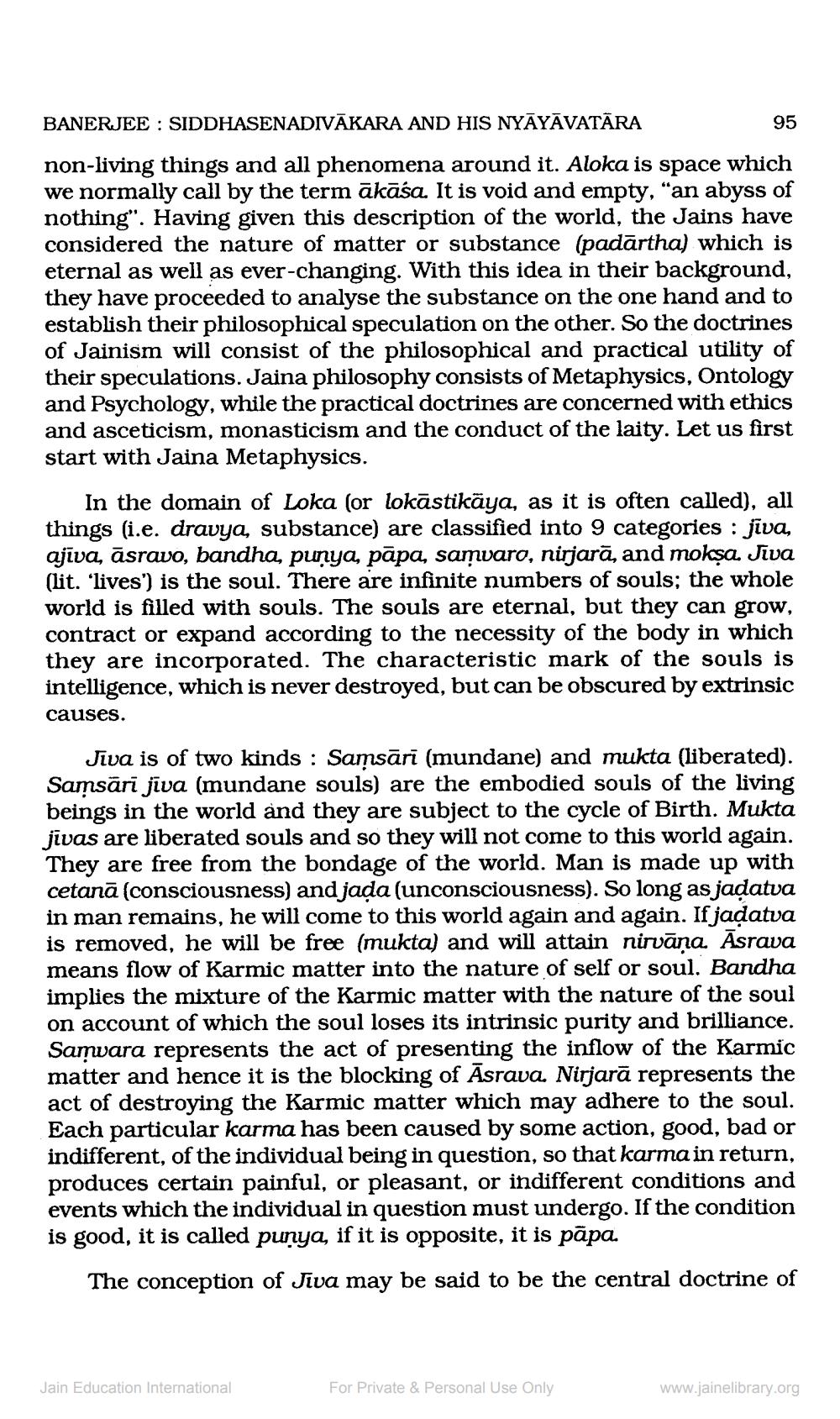Book Title: Jain Journal 1998 04 Author(s): Jain Bhawan Publication Publisher: Jain Bhawan Publication View full book textPage 5
________________ BANERJEE : SIDDHASENADIVĀKARA AND HIS NYAYĀVATĀRA 95 non-living things and all phenomena around it. Aloka is space which we normally call by the term ākāśa. It is void and empty, "an abyss of nothing". Having given this description of the world, the Jains have considered the nature of matter or substance (padārtha) which is eternal as well as ever-changing. With this idea in their background, they have proceeded to analyse the substance on the one hand and to establish their philosophical speculation on the other. So the doctrines of Jainism will consist of the philosophical and practical utility of their speculations. Jaina philosophy consists of Metaphysics, Ontology and Psychology, while the practical doctrines are concerned with ethics and asceticism, monasticism and the conduct of the laity. Let us first start with Jaina Metaphysics. In the domain of Loka (or lokāstikāya, as it is often called), all things (i.e. dravya, substance) are classified into 9 categories : jīva, ajīva, āsravo, bandha, punya, pāpa, samvaro, nirjară, and mokşa. Jiva (lit. 'lives') is the soul. There are infinite numbers of souls; the whole world is filled with souls. The souls are eternal, but they can grow, contract or expand according to the necessity of the body in which they are incorporated. The characteristic mark of the souls is intelligence, which is never destroyed, but can be obscured by extrinsic causes. Jiva is of two kinds : Samsāri (mundane) and mukta (liberated). Samsāri jīva (mundane souls) are the embodied souls of the living beings in the world and they are subject to the cycle of Birth. Mukta jivas are liberated souls and so they will not come to this world again. They are free from the bondage of the world. Man is made up with cetanā (consciousness) and jada (unconsciousness). So long as jaçatva in man remains, he will come to this world again and again. If jadatva is removed, he will be free (mukta) and will attain nirvāņa Asrava means flow of Karmic matter into the nature of self or soul. Bandha implies the mixture of the Karmic matter with the nature of the soul on account of which the soul loses its intrinsic purity and brilliance. Samvara represents the act of presenting the inflow of the Karmic matter and hence it is the blocking of Āsrava. Nirjarā represents the act of destroying the Karmic matter which may adhere to the soul. Each particular karma has been caused by some action, good, bad or indifferent, of the individual being in question, so that karma in return, produces certain painful, or pleasant, or indifferent conditions and events which the individual in question must undergo. If the condition is good, it is called punya, if it is opposite, it is pāpa. The conception of Jiva may be said to be the central doctrine of Jain Education International For Private & Personal Use Only www.jainelibrary.orgPage Navigation
1 ... 3 4 5 6 7 8 9 10 11 12 13 14 15 16 17 18 19 20 21 22 23 24 25 26 27 28 29 30 31 32 33 34 35 36 37 38 39
